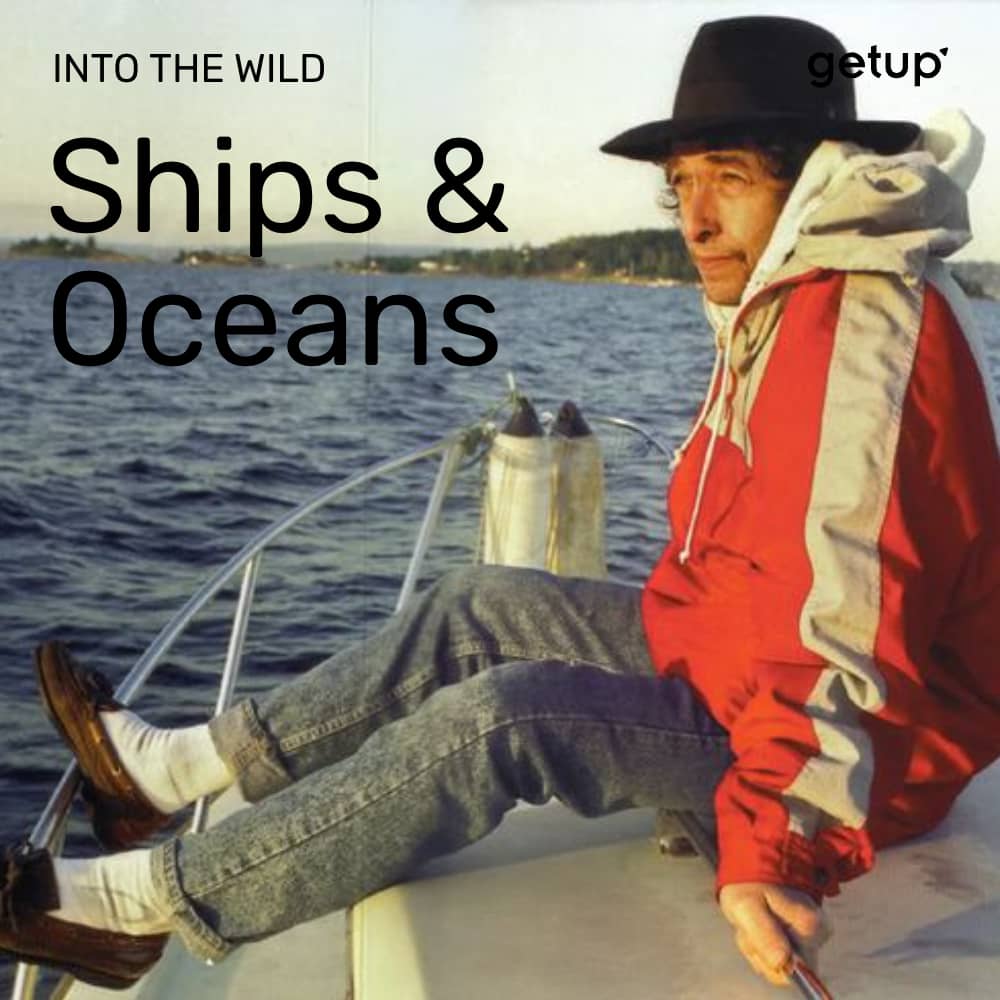‘Longer boats are coming to win us’, wrote Cat Stevens in 1970. In every language and in every style, there are songs that speak to us of the great ships we can watch from the shore (Bob Dylan, “When the Ship is Coming”), or of sitting on a quay at sunset, contemplating the horizon (Otis Redding’s “Sittin’ on the Dock of the Bay”). When a ship docks, it’s quite an event. What is it carrying? Gainsbourg wondered what part of Africa has it come from (“Cargo Culte”)? When it departs, Henri Salvador’s imagination takes over (“Les Voiles du Bateau” by Jacques Haurogné).
Even when viewed from the shore, the sea remains an unknown place, full of danger and mystery, on which all sorts of legendary or ghostly ships sail (“Barco Negro”, an old Brazilian song renamed for the cinema, “Crystal Ship” by the Doors). Wooden boats sink under the helpless gaze of those left on land (Crosby, Stills & Nash’s “Wooden Ships”). Leaving their Caribbean or Pacific haunts, pirate ships scour the oceans (Dr John, “In Lure of the Tropics”). This crossing has also long been associated with trade and with slave routes (“Antilles Méchant Bateau”, “Ship Ahoy” by the O'Jays, “LITW” by African Boy).
Despite the risks, the desire to embark and set sail is strong. If possible on an ocean cruiser (Freddie McGregor’s “Big Ship”) or on a transatlantic liner (The Fixx’s “Liner”). Whether it’s crossing seas, canals, and rivers (Todd Rungren, “Boat on the Charles”) or going up river (Ike & Tina Turner’s “Proud Mary”, Clara Nunes’ “Vapor de São Francisco”, Madness’ “Night Boat to Cairo”), taking a boat means escaping from the world and its problems and going on an adventure – sometimes a very long one (Ella Fitzgerald & Joe Pass “On a Slow Boat to China”). But sometimes it’s nothing more than a waking dream (Gal Costa & Jards Macalé, “The Empty Boat”).
Once on board, when the siren signalling departure sounds, it’s a different story. Whatever the state of the boat, the spectator now becomes a sailor, (Bobby Bland, “Rockin’ in the Same Old Boat”), or a maniacal and exclusive owner (Miles Davis’ “My Ship”, Melissa Laveaux’s “My Boat”, Bob Marley, “Don't Rock My Boat”). In Axel Bauer’s maritime imagination, the boat remains a very masculine space (“Cargo”). In the Pogues’ imagination the captain is not afraid of storms and has to bring the cargo to port at all costs (“Drunken Boat”). And after weeks of hard sailing, the crew only wants one thing: to return home safely (Sloop John B in an instrumental version by Arthur Lyman, “DayO” by Harry Bellafonte).




.jpg)
.jpg)
.jpg)
.jpg)